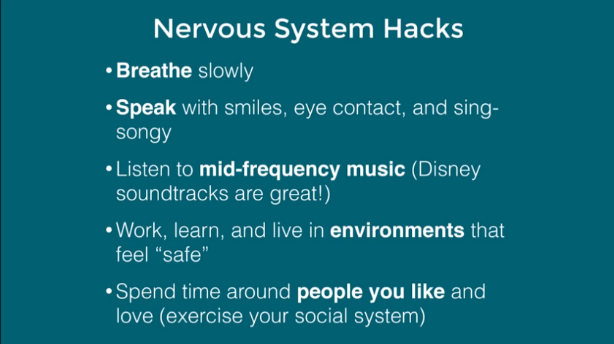
Estimated reading time: 8 minutes
Although your partner thinks you’re responsible for most of the troubles in your relationship, it’s not you. It’s your biology. To be more accurate, it’s your primitive brain parts. These are your reptilian brain and your mammalian brain/limbic system. They work so closely together that together they’re called the primitive brain parts, within you and me and all humans.
So biology has played a cruel trick on your relationships. These brain parts are the animal defenses in your brain and body, hard-wired by evolution to focus on safety and survival. They are necessary for your well-being and operate automatically with lightning speed – in milliseconds to be precise. They are part of your autonomic (automatic) nervous system.
Your primitive brain
Your biology has evolved so that you have three parts to your brain. The order in which they developed via evolution are:
First: The reptilian brain – appeared 230 million years ago (dinosaurs, birds, lizards). The oldest part of your animal brain.
Second: The limbic system or mammalian brain – appeared 200 million years ago (shrews, dogs, cats, horses). The second-oldest part of your animal brain.
Third: The neocortex – the newest part of your brain – appeared 1.9 million years ago. It’s your thinking, logical, rational, observing part. It’s what distinguishes you from animals. This allows you to think about thinking.
The primitive brain has evolved over hundreds of millions of years to become expert and automatic in two things:
- avoiding risk – pain, discomfort and threats
- seeking safety – food, shelter, sex, comfort and pleasure.
Your knee jerk reactions
Avoiding pain and seeking safety/pleasure are your knee jerk, automatic, unconscious reactions. They are hard-wired through evolution to ensure your survival by keeping you alive and safe. Your animal survival responses fall into five categories:
- Fight – vigilance, makes you angry, judgmental, mistrustful, self-harm/self-sabotage, controlling, suicidal.
- Flight – escape, makes you distance, avoid commitment, be ambivalent, indulge in addictive behaviours.
- Freeze – fear, makes you frozen, terrified, wary, phobic of being seen, causes panic attacks and fainting.
- Submit – shame, makes you depressed, ashamed, passive, appease, be a “good girl/good boy”, caretaker, self-sacrifice.
- Attach – needy, makes you desperate, cry for help, crave rescue and connection, it’s an innocent/naïve part, it wants a protector because it feels so vulnerable.
Your primitive brain in relationship
When you are fearful, threatened, stressed or triggered in your relationship, your primitive brain is wired to respond automatically and unconsciously due to a process called neuroception. This occurs 24/7 and is your animal brain’s way to distinguish if situations or people are safe, dangerous, or life threatening. The brain does this instantly and automatically, in fractions of a second. It’s a physical, bodily reaction, which then sets off emotions, thoughts and behaviour. Your stress responses are physical in origin, not necessarily psychological.
Your brain is always scanning people and situations for safety or threat. When threat is sensed, even minutely, you react quickly. So quickly and unconsciously that you often don’t know what prompted your reaction. The causes of these reactions are often called triggers.
Triggers can be thoughts, memories, sensations or something you see, hear, smell, taste or touch, often on a subconscious level. Without being taught about this process, you’re not aware of what triggers you because neuroception is constantly operating. So if you feel unsafe, you’re just constantly reacting. This is the filter through which you experience the world, your relationship and your sense of safety or threat, as explained by Seth Porges.
Your reactions to triggers feel like the truth, but they’re not the truth. They’re felt senses, body and emotional memories, encoded in your primitive brain remembering what happened to you in our past. The past can be as far back as your early childhood relationships to your carers, or more recently in your adult life. But it also goes back into your evolutionary past, the past which all humans carry within us. These reactions are primitive, unconscious, automatic reactions to events which have happened but are not actually happening now. Watch Peter Levine working with a man with PTSD body memories from being in Iraq.
No distinction between past and present
When your primitive brain is triggered, it cannot distinguish past from present. Because you don’t feel safe, it seeks urgent and immediate relief from the distress which is felt in the present. And it kicks you into one or more of the five knee jerk reactions above. It hijacks you into reactions. All animals have these, and we humans are refined animals because of our thinking, observing brain, the newest part of the brain to evolve.
In relationship, your reactivity can lead to fighting, fleeing, freezing, appeasing or clingy reactions which block you from responding in adult, appropriate ways. These primitive reactions hijack your thinking brain and can trigger you into being verbally abusive, avoiding your partner by distancing, numbing yourself via addictions, being silent, becoming resentfully compliant or desperately needy. Relationships in which you don’t feel safe are not healing. They badly impact your physical, emotional and psychological health.
All these built-in reactions in your primitive brain prevent you from accessing your mature, adult, coping self to appropriately deal with your relationship. They block you from speaking up respectfully and maturely to defend important values.
It’s reassuring to know that these knee-jerk reactions are designed to give you rapid relief from pain, fear or threat. They are not intended to be ongoing ways to manage stress. The fact that they make you and your partner more miserable doesn’t make any difference to the primitive brain. Remember reptiles don’t think about cooperating. They focus on “kill or be killed, eat or be eaten.” There’s no guilt, self-doubt, or compassion in your primitive brain. It’s all about the five knee jerk reactions above.
Your observing brain in relationship
However, your biology also evolved the neocortex, the logical, rational, planning, hypothetical thinking, observing part of your brain. This is the mature part of you that can be mindful, dream, imagine a better future, feel compassion and desire to cooperate with your partner. This part needs to be online if you want to develop a teamwork approach to relationship. Being a good team is what a healthy relationship is all about. To do this, you need to do repeated, daily practice to calm down your nervous system, be mindful of your thoughts, feelings and sensations and engage your observing brain.
Your observing brain is the mature, adult part of your brain which developed around 1.9 million years ago. And so it’s much younger in evolutionary terms than the primitive brain. It’s the part of you that Janina Fisher calls the “going on with normal part” of the self. Importantly, this is the part that is your professional self, the parent, the friend, the part with special talents or social skills. It helps you navigate your daily life. And it can be trained to help you relate more safely and with compassion to yourself and your partner.
Learning to create safety in yourself first is vital
So it’s important to know that until you learn self-soothing skills to keep yourself and then your partner safe, the primitive and the observing parts of your brain will keep battling with each other. They do this within you and in your relationship. Creating safety in yourself is the first order of business because you are with you 24/7. Learning to identify and manage your physical reactions to your triggers gives you a “superpower”. You get back in control of your self. This is a hugely important skill to learn in relationship.
It’s like flying in a plane. You must put on your own oxygen mask first or you can’t help others. If you’re unconscious in a plane, you’re no good to anyone else. The same is true if you’re trapped in your unconscious, automatic triggered reactions in your relationship. If you’re not conscious of what you’re doing, you’re likely to hurt yourself and your partner. Below are some suggestions for calming your brain and yourself by Seth Porges.

Sadly, in many relationships your primitive brain and its unconscious reactivity dominates. It is a fact that in relationship we all struggle to tame our primitive brains, especially when our partner triggers us. And it is inevitable that our partner will trigger us, as Terry Real explains. Learning to manage our triggers is the work of successful relationships.
Your relationship to yourself and your partner doesn’t have to be a hopeless struggle. You can get help from experienced relationship counsellors. And especially ask for help in learning how to calm down your own primitive brain and nervous system, so that you can be safe and calm for your partner. There are simple body-based skills you can learn and practice based on the latest science in trauma treatment. Make sure to ask if your counsellor is trauma-informed.
If you’re interested in winning this struggle with yourself and your partner and in learning research-based skills to develop teamwork, call 0421 961 687 or email us to schedule an appointment. International callers should call +61 421 961 687. You deserve the best trained coaches if you’re planning to invest time and money in your relationship. If you’re not ready to book an appointment, call us on 0421 961 687 to book a FREE 15 minute phone consultation to discuss how we may be able to assist you.

Leave a Reply